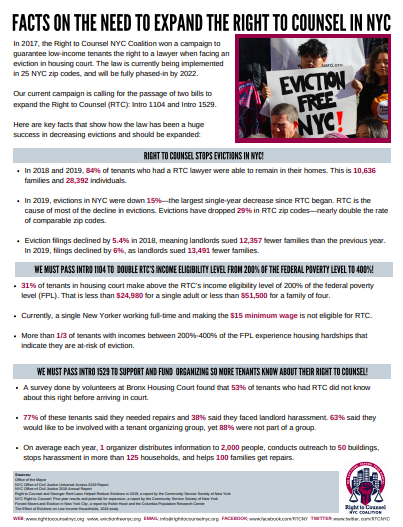Truthfulness, according to the Bahá’í teachings, is not merely a virtue but rather a divine imperative rooted in the very essence of God’s design for human interaction and society. This divine commandment, often referred to as God’s First Counsel, invites adherents to embrace truthfulness as the cornerstone of a moral life. This exposition endeavors to illuminate the multifaceted dimensions of this paramount principle, exploring its implications for personal development, community dynamics, and spiritual evolution.
At its core, truthfulness embodies authenticity and integrity, serving as a bridge to the divine nature of God. The Bahá’í writings assert that every soul, in its noblest form, inherently seeks truth. To be truthful is to align oneself with the reality of existence, recognizing that deviation from truth leads not only to personal dissonance but also to societal discord. This alignment requires an unwavering commitment to accuracy in thought, word, and deed, fostering a sense of clarity amidst the complexities of modern existence.
In an age rife with misinformation and ambiguity, the Bahá’í teachings present truthfulness as a beacon of hope—a means to cultivate trust among individuals and communities. By committing to honesty, one nurtures relationships built on sincere understanding and respect. As such, truthfulness acts as a catalyst for unity, enabling diverse groups to engage in constructive dialogue, devoid of deceitful pretenses. By establishing solid foundations through honest communication, Bahá’ís are empowered to resolve conflicts amicably and efficaciously.
The transformative power of truthfulness extends beyond individual character; it purports a profound impact on community cohesion and social progress. A collective dedication to this ethic engenders an atmosphere where justice and equity can thrive. In Bahá’í communities, the practice of truthfulness is integral to decision-making processes, enhancing transparency and accountability. Such environments foster active participation, where individuals feel valued and understood, thus reinforcing a culture of collaboration and mutual support.
Moreover, the socio-economic implications of truthfulness cannot be understated. In business and governance, ethical practices predicated on honesty yield long-term benefits, promoting sustainable relationships with stakeholders. Organizations guided by truthfulness are likely to inspire loyalty and trust among their clientele, engendering a flourishing enterprise rooted in ethical stewardship. The Bahá’í teachings thus advocate for a concordance between spiritual principles and economic activities, reinforcing the notion that business can serve a higher purpose when conducted with integrity.
In grappling with the nuances of truthfulness, it becomes paramount to distinguish between mere honesty and the deeper essence of truth. Truth, from a Bahá’í perspective, transcends factual accuracy; it encompasses a broader comprehension of the human condition and the universe. Engaging with truth thus necessitates a willingness to explore diverse perspectives, fostering a culture of open-mindedness and humility. Such endeavors compel individuals to confront their biases and preconceived notions, ultimately leading to a more profound appreciation of humanity’s collective journey.
A pertinent aspect of truthfulness is its intimate relationship with justice. The Bahá’í teachings posit that justice is most conducive when rooted in truth, for it compels individuals to acknowledge their responsibilities and actions accurately. When individuals uphold truthfulness, they become agents of justice, advocating for the rights of others and championing fairness within their spheres of influence. As such, the pursuit of truth becomes inexorably intertwined with the quest for justice, ensuring that both serve as guiding principles within society.
From a spiritual vantage point, truthfulness serves as a vital tool for personal transformation and enlightenment. The process of seeking and embodying truth fosters a deeper connection with the divine. As individuals embark upon this journey of truth-seeking, they often encounter transformative experiences that catalyze spiritual growth, leading to a more profound understanding of their purpose and place within the cosmos. The harmony achieved through truthfulness ultimately reflects the divine attributes instilled within each individual, illuminating the path toward self-realization.
Embracing the power of truthfulness, however, is not without its challenges. In a world beset by partial truths and conflicting narratives, the steadfast commitment to truth may require considerable courage and perseverance. Adherents are called to engage with the complexities of human experience and societal norms while remaining resolute in their commitment to integrity. This commitment becomes a practice of discernment, where individuals must navigate the delicate balance between honesty and compassion, ensuring that their truthfulness does not lead to harm or discord.
The practical applications of truthfulness manifest in myriad ways throughout daily life. From interpersonal relationships to conflict resolution and community building, this principle acts as a guiding light for ethical engagement. In discussions and debates, Bahá’ís strive to articulate their perspectives grounded in truth, while remaining receptive to the truths articulated by others. This proclivity for respectful discourse not only enriches personal interactions but also elevates the quality of public dialogue, contributing to the strengthening of community bonds.
Furthermore, the repercussions of truthfulness extend to one’s legacy and impact on future generations. By embodying this principle, individuals impart valuable lessons that transcend time, instilling virtues of honesty and integrity in their progeny. Such legacies are essential to the continuity of moral values, serving as a vital antidote to the erosion of ethical standards within contemporary society.
Ultimately, the Bahá’í teachings emphasize that truthfulness is not merely a passive state of being but an active pursuit that demands diligence, courage, and resilience. It challenges adherents to delve deeper into their understanding, fostering a culture of enlightenment where the pursuit of truth becomes a shared endeavor. Through the steadfast practice of truthfulness, individuals not only align themselves with divine will but also contribute to the creation of a more just and equitable world, where the light of truth pervades all aspects of human interaction.
